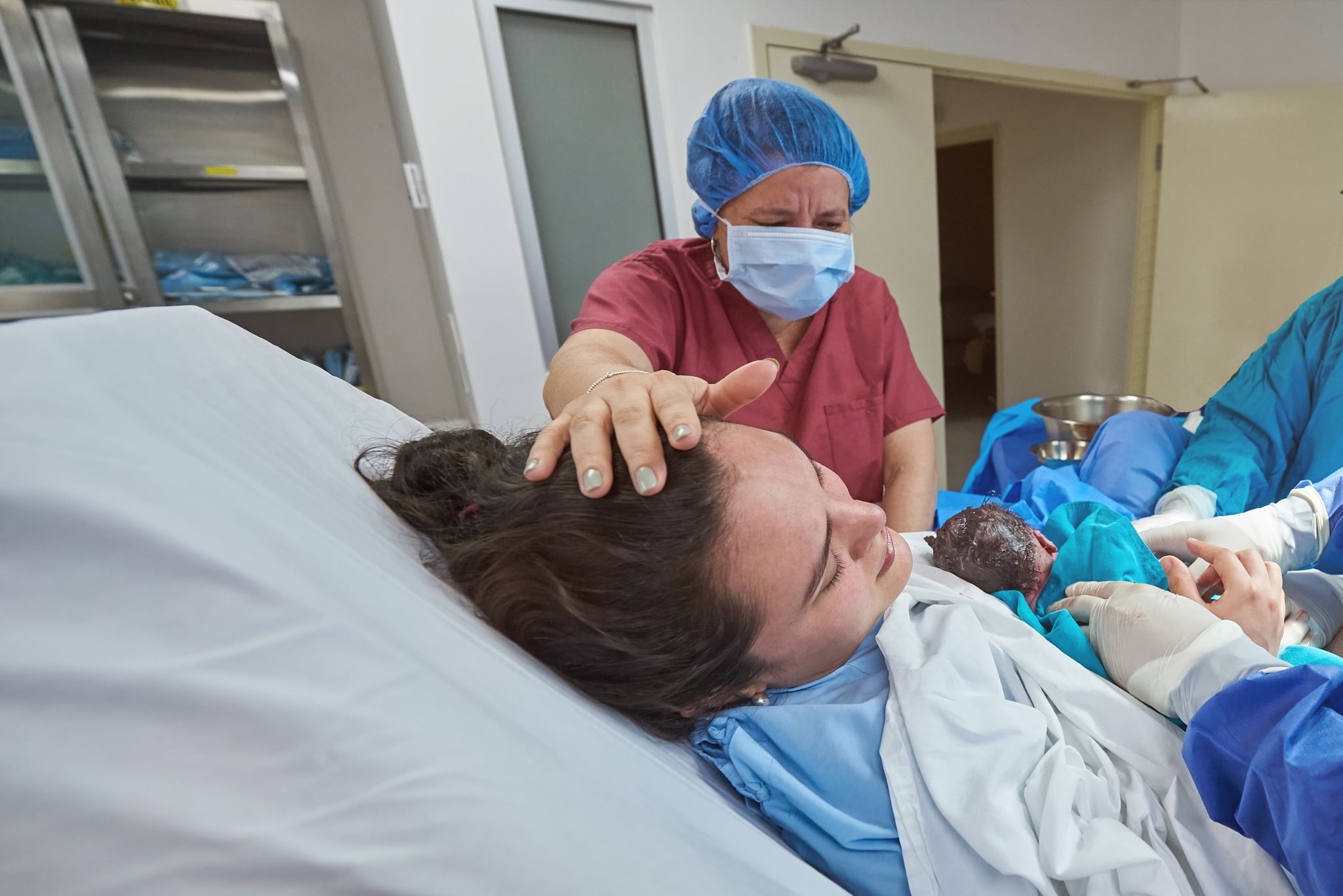
The postpartum period is complicated and can come with symptoms first-time moms often don't anticipate. You can experience hair shedding [1] and bleeding for weeks and months [2] after giving birth, among other things. But in the immediate aftermath of having a baby, some new moms can experience a symptom that can be jarring if you're not expecting it: postpartum chills.
Also known as postpartum shivering, postpartum chills can come on quickly just a few hours after childbirth or begin during labor [3] (both with vaginal and caesarean sections) and last for an hour or so, per Cleveland Clinic [4]. But shivering can also be a sign of an infection in some situations. Here's what you need to know about postpartum chills, plus when to flag them for your doctor.
What Are Postpartum Chills?
Postpartum chills are exactly what they sound like: You start shivering in the postpartum period [5], which begins the moment you give birth, says Christine Greves, MD [6], a board-certified ob-gyn at the Winnie Palmer Hospital For Women & Babies.
One small study [7] of 97 women who had an uncomplicated vaginal delivery [8] found that women who experienced chills delivered smaller babies, but it wasn't a significant difference. "These chills are generally harmless," Dr. Greves says.
Ultimately, "postpartum shivering is common," confirms Micah Garb, MD [9], an ob-gyn at Northwestern Medicine Lake Forest Hospital. One estimate [10] found that between 25 and 50 percent of people experience postpartum chills, but other studies say the number is closer to 30 percent [11].
What Causes Postpartum Chills?
The short answer: Experts don't know. However, there are some theories. Dr. Garb breaks down a few:
- Your hormones change and body temperature drops after you go through the hard work of labor, leading to chills.
- After you give birth, a source of heat (the baby) is removed and your body is confused. "It tries to generate more heat with shivering," Dr. Garb says.
- Reactions to drugs, like anesthesia (spinal or epidural) used in labor [12]. "Blood flows in the lower half of the body temporarily change after the anesthesia is given. In some patients, this can induce shivering — even before the baby is born," Dr. Garb says.
How Long Does Postpartum Shaking Last?
While postpartum chills can be pretty uncomfortable, "the shivering passes quickly," says Dr. Garb. Data [13] generally shows that the shivering can start one to 30 minutes after you give birth and may last for anywhere from two to 60 minutes. So, they shouldn't last too long.
There's no need to panic when they come on. "Let it happen and don't be too worried, Dr. Greves says. "You can always ask your healthcare provider about it, but you shouldn't be afraid or worry that this is something abnormal."
Typically, adding warm blankets [14] or warm air can help, Dr. Garb says. And "sometimes an anesthesiologist will use medication if the shivering is thought to be directly related to the anesthetic," he says.
Should You Be Concerned About Postpartum Chills?
In general, no. However, Dr. Greves recommends talking to your doctor if you experience chills after the effects of anesthesia wear off (if you had anesthesia) or if you suddenly develop chills a day or so after giving birth. Those can be a sign of an infection, she says.